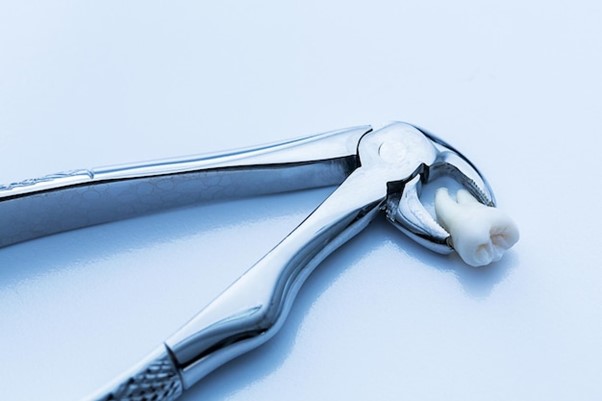Wisdom tooth extraction is a common dental procedure that many people undergo during their lifetime. While it might sound intimidating, it is a routine surgery performed by oral surgeons or dentists to remove one or more of the third molars at the back of your mouth, typically known as wisdom teeth. Whether it’s due to discomfort, impaction, or other dental concerns, getting your wisdom teeth removed can greatly improve your oral health.
What Are Wisdom Teeth?
Wisdom teeth are referred to the third and last set of molars that typically appear in your late teens or early twenties, usually between the ages of 17 and 25. They are the last teeth at the back of the mouth and were originally useful for early humans who needed extra chewing power to break down tough, raw foods.
Over time, human diets and jaw structures have evolved, and the need for these teeth has diminished. In many people, the jaw is not large enough to accommodate wisdom teeth, leading to a variety of potential problems. When these teeth do not come in properly, they may become impacted, cause infections, or damage neighbouring teeth.
Why Are Wisdom Teeth Extracted?
A dentist may recommend the removal of your wisdom teeth for several possible reasons, such as:
- Impacted Wisdom Teeth: An impacted wisdom tooth is the one that fails to fully emerge from the gums because of inadequate space or incorrect alignment. It can become trapped under the gums, causing pain, swelling, and infection.
- Infection or Gum Disease: Wisdom teeth can be difficult to clean properly because of their location at the back of the mouth. As a result, bacteria can accumulate, leading to infections, gum disease, and cavities.
- Crowding of Other Teeth: If there isn’t enough space in your mouth, the eruption of wisdom teeth can cause nearby teeth to shift out of alignment, leading to overcrowding and misalignment issues.
- Cysts or Tumors: In rare cases, a cyst can form around an impacted wisdom tooth, potentially may result in damage to the jawbone or nearby nerve structures. Removal of the wisdom teeth in such cases can prevent further complications.
- Pain or Discomfort: Wisdom teeth can sometimes cause pain or discomfort even if they are not impacted. If you’re experiencing persistent pain, your dentist may recommend extraction to relieve it.
The Wisdom Tooth Extraction Procedure
When your dentist or oral surgeon recommends wisdom tooth extraction, it’s essential to understand the procedure and what to expect. Here’s a step-by-step overview:
- Consultation and Examination: Prior to the procedure, your dentist will perform a comprehensive examination of your mouth, including X-rays to determine the position of your wisdom teeth and assess any potential risks or complications. They will also discuss your medical history to ensure you are a suitable candidate for the procedure.
- Anaesthesia: Wisdom tooth extraction is typically performed under local anesthesia to numb the area around the teeth, It will be administered to keep you in a relaxed state during the procedure.
- Extraction Process: An incision will be made in the gum tissue by the dentist to access the wisdom tooth. In some cases, they may need to remove bone around the tooth to access it. The tooth will then be extracted, sometimes in pieces, if it’s impacted. Afterward, the gum is sutured closed.
- Post-Extraction Care: After the procedure, you will be monitored for a short period while the anesthesia wears off. You’ll be given instructions on how to care for your oral cavity to promote healing and prevent complications like dry sockets or infections.
Recovery After Wisdom Tooth Extraction
The recovery period following wisdom tooth extraction can vary depending on the complexity of the procedure, but most people recover within a few days to a week. Here are some general guidelines for a smooth recovery:
- Pain Management: It is common to experience some pain, swelling, and bruising after the extraction. Over-the-counter pain medications prescribed by your dentist can help manage discomfort.
- Swelling and Bruising: Swelling around the cheeks is normal and typically peaks within 48-72 hours. Applying a cold compress can help reduce swelling in the first 24 hours.
- Eating and Drinking: After the procedure, it’s important to stick to soft foods and liquids for a few days to avoid irritating the extraction site. Avoid hot foods, spicy foods, or foods with small seeds that can get stuck in the wound. Drinking plenty of fluids and staying hydrated is essential.
- Oral Hygiene: While you may need to avoid brushing directly around the extraction site for the first couple of days, it’s important to maintain good oral hygiene. You can gently rinse your mouth with salt water starting 24 hours after the procedure to help keep the area clean and promote healing.
- Rest and Recovery: Rest is key to a speedy recovery. Take it easy for the first few days after surgery and avoid any strenuous activities that could disrupt the healing process. Refrain from smoking, as it can slow down the healing process and raise the risk of complications.
- Follow-Up Visits: Your dentist will schedule a follow-up appointment to make sure your gums are healing correctly and that there are no indications of infection. If you have stitches, they may dissolve on their own, or your dentist may need to remove them at a follow-up visit.
Potential Risks and Complications
Although wisdom tooth extraction is generally safe, there are some potential risks and complications, including:
- Infection: Although rare, infections can occur after wisdom tooth removal. This is why it’s essential to follow your dentist’s aftercare instructions carefully.
- Dry Socket: This is a painful condition that can occur if the blood clot in the socket becomes dislodged. Avoid sucking motions (like smoking or drinking through a straw) in the days following surgery to prevent this.
- Nerve Damage: In rare cases, extraction of wisdom teeth can result in nerve injury, leading to tingling or numbness in the lips, tongue, or chin. This typically resolves on its own but may require further evaluation.
Your dentist will review the potential risks with you prior to the procedure and help you weigh the benefits of extraction against any concerns you may have.
Take the First Step Toward a Healthy Smile
If you’re experiencing discomfort from your wisdom teeth, don’t wait for the problem to get worse. Schedule a consultation with Sri Bhaskara Eye and Dental Clinic today, and let our expert team provide you with the care you deserve. Whether you’re in need of a simple extraction or more complex oral surgery, we’re here to help you achieve optimal oral health.
Contact us now to book your appointment and get back to living your life without the discomfort of wisdom teeth pain. Trust Sri Bhaskara Eye and Dental Clinic for all your dental care needs!



